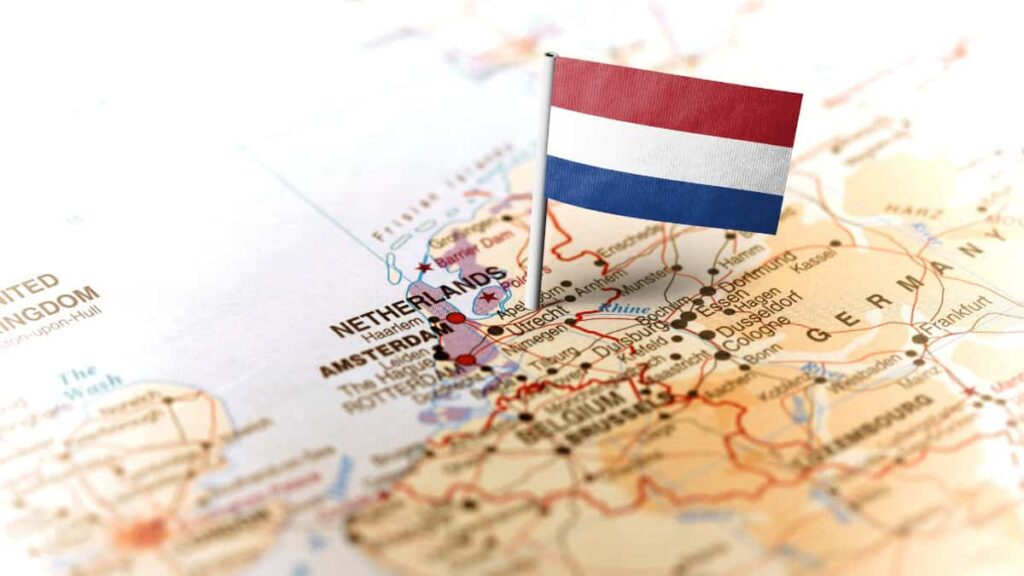When it comes to researching Dutch genealogy, there are a variety of online resources that can help you uncover your family history. The Netherlands has a rich and extensive historical record system, making it easier for researchers to trace their Dutch ancestry. Key resources include Dutch archives like the Stadsarchief Amsterdam and provincial archives, which house vital records such as birth, marriage, and death records. Many of these documents have been digitized and are now available through regional and national archives, offering access to records from centuries past.
In addition to archives, specialized genealogy websites like the Central Bureau for Genealogy and various municipal archives provide detailed indexes and searchable databases that focus specifically on Dutch families. Online platforms also offer access to Dutch church registers, land records, notarial records, and even colonial records, which can all be crucial for building an accurate family tree. Whether you are tracing Dutch roots in North America or across Europe, these resources are invaluable tools in your research.
Digging Deeper: unlocking the past with dutch genealogy resources
When starting your Dutch genealogy research, knowing where to look is key. The Netherlands’ strong tradition of record-keeping means that valuable family history documents are often available online, making it easier to trace your Dutch roots, whether they’re in North America or Europe.
Dutch National and Provincial Archives
One of the most comprehensive sources for Dutch records is the Nationaal Archief (National Archives). It houses a vast array of documents, including civil registration, notarial records, and military records that go back centuries. Likewise, provincial archives, like the Stadsarchief Amsterdam, maintain important records specific to cities and regions. These archives often hold birth, marriage, and death records, as well as family registers, population registers, and even migration data.
These archives now offer many digitized records, meaning you don’t necessarily need to visit in person to access them. Many provincial archives have searchable databases that can be accessed online, providing a wealth of information about your ancestors. Some of the most valuable records include parish registers, which document births, marriages, and deaths, and can date back to the 16th and 17th centuries.
Online genealogy websites
In addition to national and provincial archives, several Dutch genealogy websites make the research process much easier. Websites like Genealogie Online and the Central Bureau for Genealogy (CBG) house vast collections of records and indexes. Many of these sites provide easy access to digitized versions of historical documents, including civil registers, census records, and burial registers. These platforms also often provide links to external sources, such as digitized newspapers, which can offer insights into your ancestors’ lives.
For those with Dutch ancestors who immigrated to North America, websites like FamilySearch—which offers free access to a large database of Dutch records—can be an incredible tool. FamilySearch hosts an extensive collection of vital records, census entries, and passenger lists, all of which are searchable by name, location, and time period.
Specialized Dutch Genealogical Databases
For more detailed and specific searches, you may want to explore specialized databases. Some archives and organizations focus on specific types of records. For example, the Holland Society of New York offers access to a range of Dutch immigrant records, while DUTCHGEN is a comprehensive database that includes indexed records of people from the Netherlands who emigrated to the United States in the 19th and 20th centuries.
Dutch genealogy websites also allow for searches based on naming patterns. Dutch surnames often follow consistent naming conventions, which can help narrow down your search when looking through older documents. For example, many Dutch surnames are patronymic, meaning they are based on the father’s first name, such as “Janssen” (son of Jan) or “Pietersen” (son of Pieter). Understanding these patterns can help you identify your ancestors more quickly in records.
Key Resources and links for your research
Here is a list of some of the most important resources to explore for Dutch genealogy research:
- Stadsarchief Amsterdam – A key repository for records related to Amsterdam and its inhabitants.
- Nationaal Archief – The Netherlands’ national archive, offering access to a wide range of documents.
- Central Bureau for Genealogy (CBG) – A resource for family trees, historical documents, and indexes.
- FamilySearch – A free platform offering a variety of Dutch genealogical records.
- Dutch Genealogy Websites – Sites like Genealogie Online provide access to databases and indexes specific to Dutch families.
These resources will help you navigate the Dutch archives and get closer to uncovering the fascinating history of your Dutch ancestors.
Related topics to enhance your dutch genealogy research
While Dutch genealogy research primarily focuses on vital records and historical documents, there are several related topics that can further enrich your understanding of your ancestors’ lives and the times they lived in. These additional resources can offer valuable context and help fill in the gaps in your family history.
Understanding dutch naming practices
One of the most helpful aspects of Dutch genealogy is learning about the naming conventions used by the Dutch people. Dutch surnames often follow patronymic patterns, where a surname is derived from the father’s first name. For example, “Janssen” means “son of Jan” and “Pietersen” refers to “son of Pieter.” Additionally, many Dutch families used the mother’s maiden name or a combination of both parents’ names for the child’s surname. Understanding these naming practices can make it easier to identify your ancestors in genealogical records, especially when searching through church registers and civil documents.
The role of churches in dutch genealogy
In the Netherlands, churches played a crucial role in record-keeping. The Dutch Reformed Church, for example, maintained detailed records of baptisms, marriages, and burials, which are often essential for genealogical research. Church registers can date back to the 16th century, providing a wealth of information about family relationships. Many of these records have been digitized and are now available through various online archives and genealogy websites.
Dutch colonial records and immigration
For those tracing Dutch ancestry in North America, colonial records can be invaluable. Dutch immigrants began arriving in the New World as early as the 17th century, with many settling in places like New York (formerly New Amsterdam). Colonial records, such as passenger lists, notarial records, and land grants, can provide insight into your ancestor’s journey to the Americas. Websites that specialize in Dutch immigration records, like FamilySearch, also provide access to these important documents, helping you trace your lineage across continents.
Newspapers and death notices
Exploring historical newspapers can provide additional context for your ancestors’ lives, especially in the case of obituaries and death notices. Many Dutch newspapers have been digitized and indexed online, allowing you to search for mentions of your ancestors in articles or announcements. These documents often provide valuable details such as family relationships, occupations, and even personal anecdotes that can flesh out your family history. Searching for death notices in publications from your ancestor’s hometown can also help you confirm vital events and locate other relatives.
By exploring these related topics and expanding your search beyond standard vital records, you’ll be able to build a more complete and accurate family tree. Understanding Dutch naming patterns, utilizing church and colonial records, and exploring digital newspaper archives will give you the tools to piece together your family’s past in a meaningful way.










